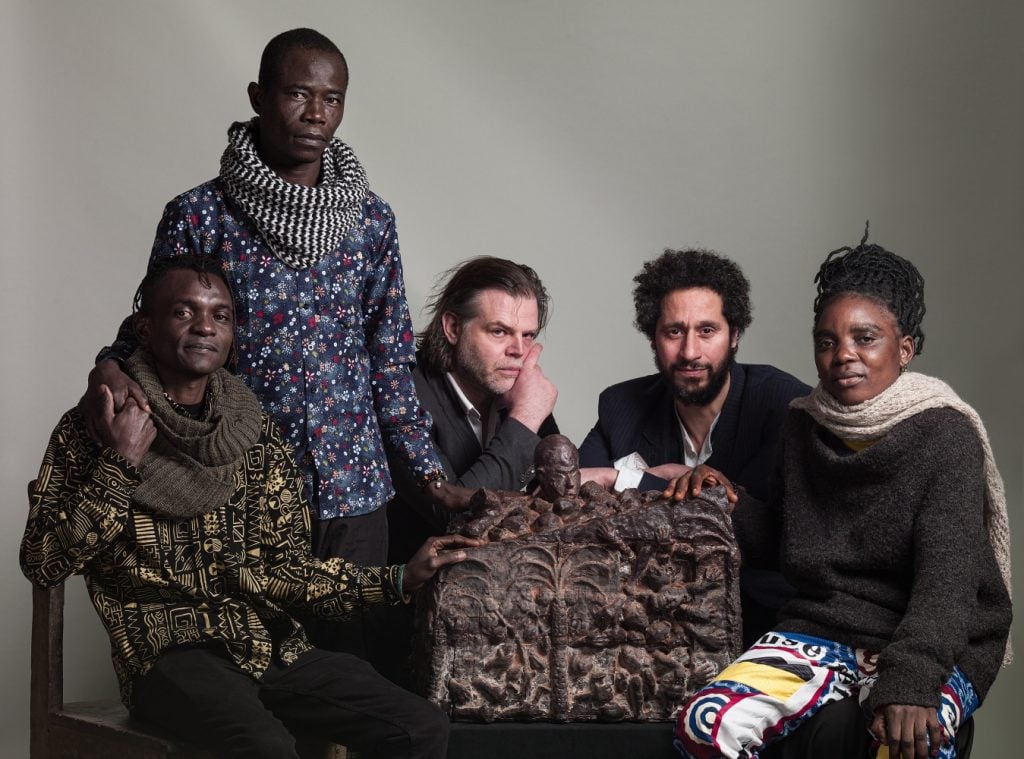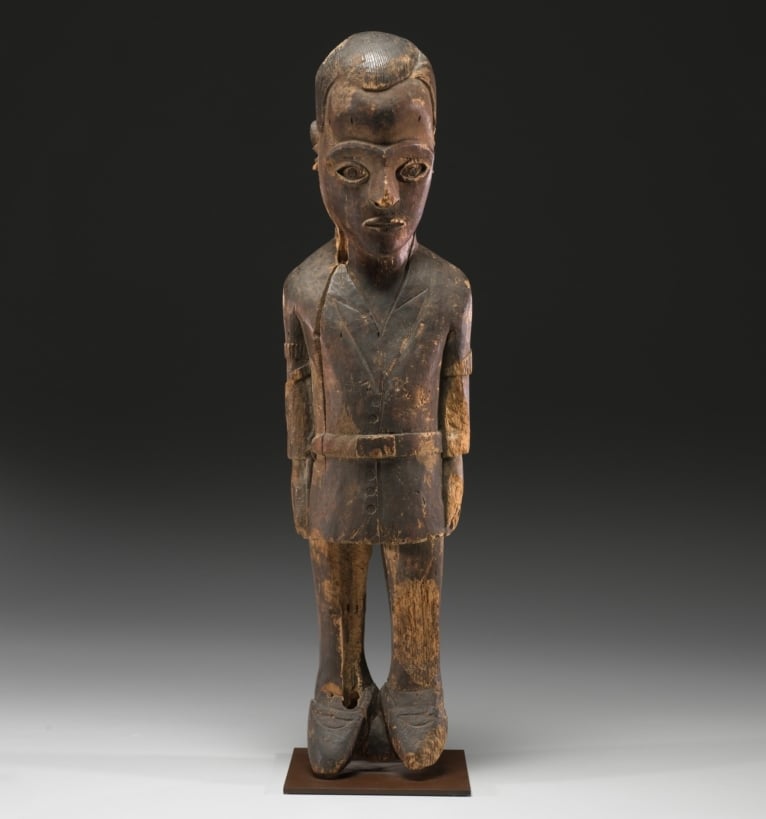Art & Exhibitions
Contested Wood Sculpture Will Get Star Turn at Venice Biennale
The wooden figure was intended to contain the angry spirit of a Belgian colonizer who was beheaded in 1931.

The wooden figure was intended to contain the angry spirit of a Belgian colonizer who was beheaded in 1931.

Jo Lawson-Tancred

A contested ancestral wooden sculpture owned by the Virginia Museum of Fine Arts (VMFA) will be temporarily loaned to the artist collective Cercle d’Art des Travailleurs de Plantation Congolaise (CATPC) as part of their exhibition for the Dutch Pavilion at this year’s Venice Biennale. It will go on display at a gallery in Lusanga, a town in the Democratic Republic of Congo (DRC), and be livestreamed into the Dutch pavilion for the duration of the biennale, which runs from April 20 to November 24, 2024.
The wooden figure was carved by a Pende artist from the Kwilu province of the DRC after the Pende Revolt against Belgian colonial rule in 1931. It is a depiction of the abusive colonizer Maximilien Balot, who was decapitated during the uprising, and is intended to contain and control his angry spirit. In this way, it would protect the Pende people.
In 1972, the sculpture, known as “Balot,” was bought by an American collector for just $120. He later sold it to the VMFA, where it has been since 2015. CATPC has long pushed for the figure’s return to Lusanga, where it would be reunited with members of the local community ranging from traditional chiefs to current plantation workers.

Chief’s or Diviner’s Figure Representing the Belgian Colonial Officer, Maximilien Balot, circa 1931. Photo: Travis Fullerton, © 2015 Virginia Museum of Fine Arts.
“By restoring the balance and correcting past injustices, the return of Balot will allow us to continue to buy back the land that was taken from us by colonial forces,” said the artist Ced’art Tamasala on behalf of CATPC. “It will enable us to abolish forced and destructive monoculture and to plant, regenerate and nourish back into existence our sacred forests.”
Alex Nyerges, the director of VMFA, said the museum is “delighted to partner with CATPC,” adding, “we hope it will inspire a new era of collaboration and partnerships between museums on both continents.”
These comments suggest that some resolution has occurred between CATPC and VMFA since 2022, when the artist collective minted a collection of 300 NFTs containing a rotating image of Balot without the museum’s permission.
“Unfortunately, the NFT has broken all trust between VMFA and the exhibition organizers,” he told me,” Nyerges told Artnet News at the time, branding the NFTs “unacceptable.” He added that VFMA would no longer loan the work to CATPC to be exhibited at the White Cube, an art gallery in Lusanga founded by the CAPTC in 2017.
Now it seems he has changed his mind and Balot is expected to go on public display at the White Cube in April. The loan is being funded by the Mondriaan Fund, which is organizing the Dutch Pavilion.
CATPC invests any proceeds from its artistic projects towards buying back plantation land that was formerly owned by the company Unilever. The collective has been collaborating with Dutch artist Renzo Martens for years, and will partner with him once again for its forthcoming exhibition at the Dutch Pavilion in Venice.